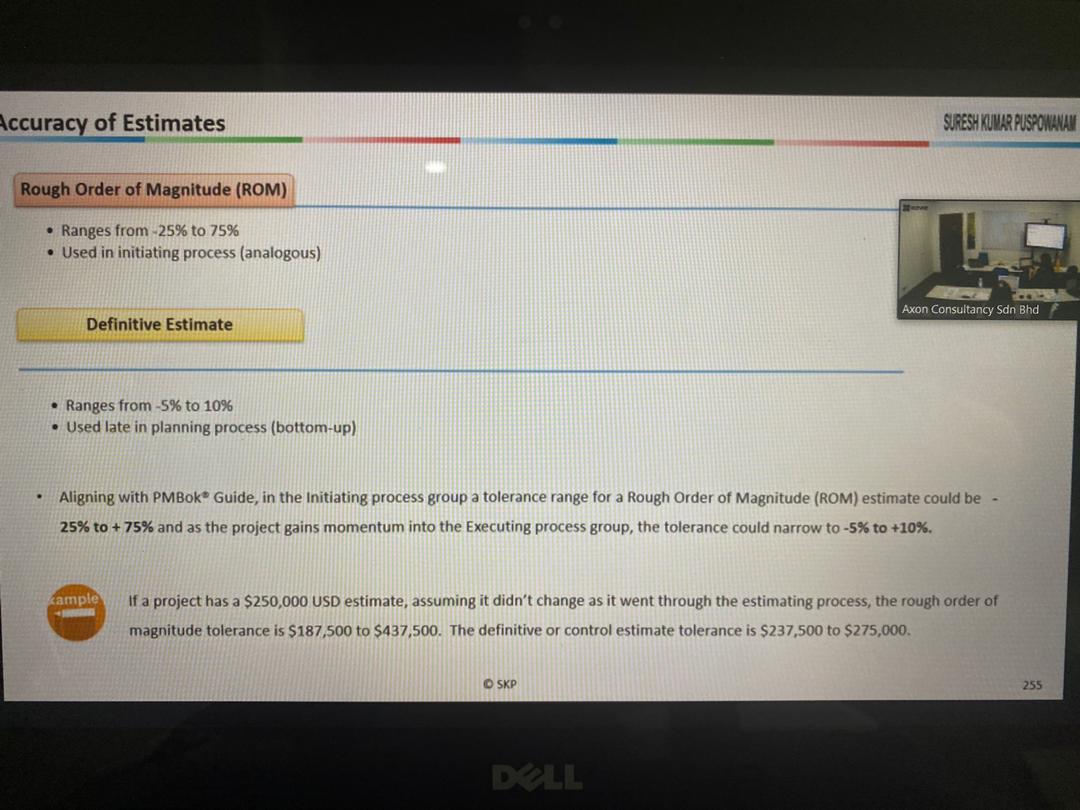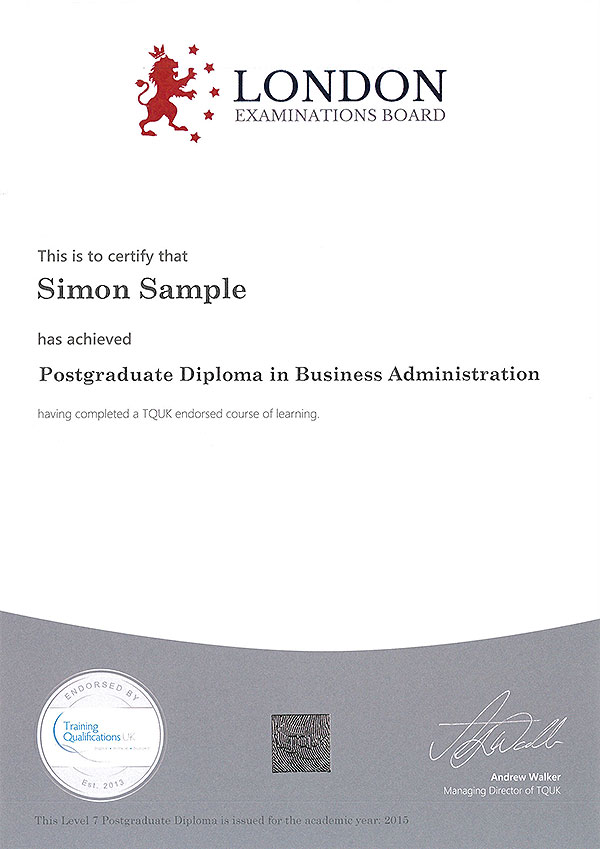London Examination Board Professional Diploma in Business Administration Leading to Master of Business Administration Awarded by The University of South Wales.
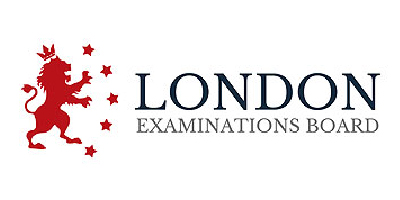
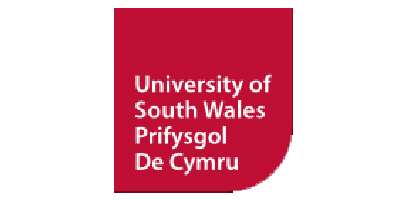
| Final Awards Received | Professional Diploma in Business Administration and Master of Business Administration |
| Awarding Bodies | The Professional Diploma in Business Administration is awarded by the London Examinations Board and the Master of Business Administration is awarded by the University of South Wales. |
| Total Modules | There are 8 modules in the Professional Diploma in Business Administration and 2 Modules for the Master of Business Administration. |
| Total Duration | 14 - 19 months |
| Intakes | Normal: Jun / Sept / Dec Express: May / Aug / Nov |
Synopsis
Candidates who meet the entry requirement shall complete 8 modules from the London Examinations Board’s Professional Diploma in Business Administration over 10 months. Upon completion of all 8 modules, candidate shall enter into the University of South Wales’s Master of Business Administration top up programme whereby candidates shall complete 3 months of Research Methodology follow by the final Management Project (Thesis).
Introduction To The University Of South Wales (USW)
The University of South Wales (Welsh: Prifysgol De Cymru) is a public university in Wales, with campuses in Cardiff, Newport, Pontypridd and Dubai.
The University has more then 30,000 students and is one of the largest universities in the United Kingdom.
The University can trace its roots to the founding of the Newport Mechanics’ Institute in 1841 which became the University of Wales, Newport. The University of Wales, Newport then merged with the University of Glamorgan on 11 April 2013 to become the University of South Wales.
The university is renowned for its partnerships with major employers, one of the reasons why 95 percent of its students are in employment or further study within six months of graduating. It uses these employer connections to run a series of public lectures featuring some of the leading figures in business and politics.
Courses across USW have been created with advice and guidance from professional bodies and leading businesses, to leave graduates from the institution in the best possible position to get a job once they have finished their qualification. USW graduates have gone on to work for companies such as Sony, the BBC, the NHS, and British Airways.
Teaching staff at USW are leaders in their fields, with connections across their specific industry, and do everything they can to make sure that students are up-to-date with the relevant information they need to succeed in their respective fields. With over 500 different undergraduate and postgraduate courses on offer at USW, there are a wide range of options for students to choose from. (ref: https://www.hotcoursesabroad.com/study/uk/school-college-university/university-of-south-wales/3894/international.html )
The Guardian Best UK University Ranking
Largest University in United Kingdom
Number Of Students In Campus Annually
Introduction to London Examinations Board (LEB)
London Examinations Board (LEB) is a UK entity registered with the UK Register of Learning Providers (number 10043715) and the Education and Skill Funding Agency UK.
London Examinations Board (LEB) was established with one vision in mind – to facilitate and make available high quality programmes and recognised qualifications globally. They aim to offer individuals across jurisdictions the opportunity to transform their lives by giving them access to prized further education and training which is further enhanced by internationally recognised qualifications. This will significantly augment their education, qualifications, employability and career progression.
Headquarters is in Hertfordshire, England and a Asia regional offices, the London Examinations Board only promotes superior internationally recognized courses. LEB is a distance learning provider, but they also recognizes that not everyone is comfortable with distance learning. Therefore LEB has approved Axon Consultancy to offer student support and, if preferred, face to face classroom learning in addition to LEB’s online delivery platform. Quality assurance visits and training on the London Examinations Board learning platform are carried out before approval is given. Annual reviews are also undertaken to ensure processes, procedures and quality assurance are maintained.
LEB Approved Learning Centres like Axon Consultancy will provide additional tutoring, administrative and other support to the learners. Learners will have full access to LEB’s online learning platform therefore be able to enjoy the benefits of LEB online learning platform which is truly interactive and harnesses the power of social networking to make learning fun, collaborative and engaging. It is a perfectly safe and secure network for learners to interact and learn from tutors and from each other.
Graduate Since 2018
Programmes Running Todate
Countries
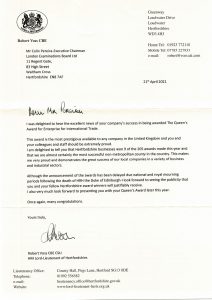
London Examinations Board is one of 205 organisations nationally and one of 9 companies in Hertfordshire to be recognised with a prestigious Queen’s Award for Enterprise announced on the 29th of April 2021.
London Examinations Board has been recognised for its excellence in international trade.
The Queen’s Awards for Enterprise are the most prestigious business awards in the country.
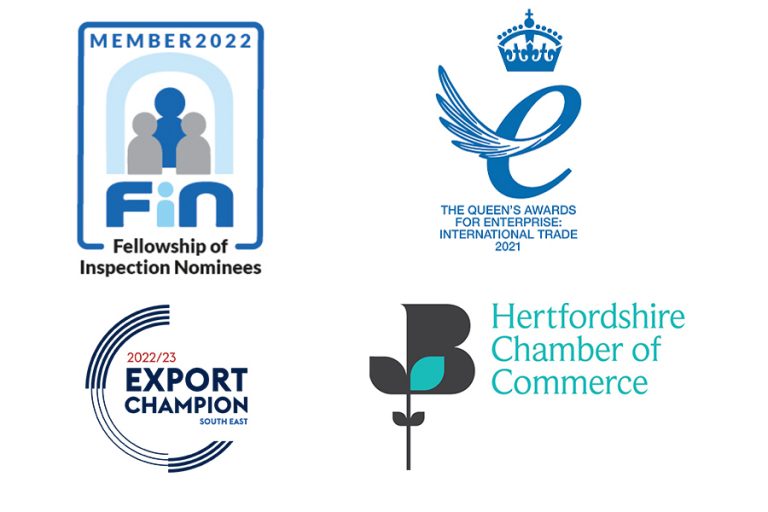
Programme Structure
The Professional Diploma in Business Administration (PGDBA) by LEB has been articulated to the USW’s MBA course.
USW has recognised the PGDBA and given it 120 credit towards the USW MBA. Therefore, PGDBA graduates need to undertake USW MBA top-up course, i.e. the 20 credit Research Methods Unit and the 40 credit Management Project.
The Professional Diploma in Business Administration uses the EHEA framework for cycles and credit workload to ensure compliance and to facilitate comparability and transfer of credits internationally.
At the beginning of the programme, all the students undergo an online induction workshop which aims to get students to acquire e-learning skills for the use of the Online Learning portal and the E library. Students’ performance in the workshop will not be assessed. Additionally, the academic expectations regulations and the concept of independent learning will also be covered at this workshop. This induction will be delivered via a pre-recorded video.
The Professional Diploma in Business Administration has eight (8) core modules of 15 credits each. Students shall undertake all eight core modules.
Students are required to complete the programme and earn a total of 120 credits to gain the Professional Diploma in Business Administration award.The programme accrues 120 credits over eight (8) core modules are as below:
Business Innovation and Entrepreneurship
Pre-requisite: None
Learning outcome: Upon completion, students will be able to:
- Examine the processes by which innovation is fostered, managed, and commercialised;
- Assess the market potential for a new venture, including customer needs, competitors, and industry attractiveness;
- Develop a business model for a new venture, including revenue, margins, operations, working capital, and investment; and
- Create a clear, concise, and compelling business plan for a new venture.
Indicative Content/Area of Study
- Entrepreneurial Thinking;
- Innovation Management;
- Opportunity Spotting and Evaluation;
- Industry and Market Analysis
- Strategy and Business Models
- Financial Forecasting
- Business Plan
- Entrepreneurial Finance
- New Venture Creation
Delivery
Lectures – Tutorial: 12 hours
Online Learning: 18 hours
Directed Independent Learning: 120 hours
Total: 150 hours
Assessment
An individual piece of Business Plan with a word count of 4,000 following a prescribed format which makes up 100% of the module marks.
Managing Business Strategy
Pre-requisite: None
Learning outcome:
Upon completion, students will be able to:
- Apply the appropriate models, techniques and theories to produce an environmental audit of the external and internal environment for an organisation; and
- Critically analyse and evaluate the alternative strategic directions an organisation may consider to employ and propose the most appropriate strategic option for execution.
Indicative Content/Area of Study
- The Concept of Strategy and how it benefits the orgnisation vision, mission and objectives.
- Transformation of the External Strategic Environment and the consequences and the Influence of the Internal Environment on Current Practie
- Key Strategic Techniques for Analsysis
- Strategic Development, namely acquisitions and Mergers, Joint Ventures and Alliances, and Divestment.
- Strategy Implementation
- Strategic Performance Analysis
Delivery
Lectures – Tutorial: 12 hours
Online Learning: 18 hours
Directed Independent Learning: 120 hours
Total: 150 hours
Assessment
A Strategic Plan of about 4,000 words is to be developed by individual students which creates recommendations for revising a business strategy to improve the competitive position and financial performance of the organisation. This assignment makes up 100% of the module marks.
Managing Human Capital
Pre-requisite: None
Learning outcome:
Upon completion, students will be able to:
- Demonstrate a critical understanding that to engage successfully in process of human capital management; their thinking needs to go beyond such dualisms as thinking and acting, structure and culture, strategy and implementation, and see each of these as different facets of unified processes in human and organisational life
- Analyse and evaluate the choices presented in approaches to human capital management practices and how these relate to the overall strategic way an organisation handles its changing environment and the range of stakeholders with which it deals; and
- Critically appraise current managerial practices to inform the way they can contribute to the strategic direction of human capital resourcing and develop appropriate and relevant solutions to employment management issues in their organisations.
Indicative Content/Area of Study
- Historical view of work, work today and workers’ psychological contract
- Essence of orgnisational strategy, human capital strategy
- Human Capital Management (HCM) roles in structures, culture and policy as well as strategic Human Capital (HC) partnership and alliance
- The Workplace Relations
- New Roles and Challenges for HCM
- Human Capital Trends and Orgnisation Culture
Delivery
Lectures – Tutorial: 12 hours
Online Learning: 18 hours
Directed Independent Learning: 120 hours
Total: 150 hours
Assessment
(a) An individual piece of Reflective Learning Log with a word count of 2,000 words following a prescribed format which makes up 60% of the module marks.
(b) A one-hour 40 MCQ final examination undertaken via an online portal which makes up 40% of the module marks.
Marketing Management
Pre-requisite: None
Learning outcome:
Upon completion, students will be able to:
- Undertake a situation analysis such that it is possible to develop a concise understanding of the marketing environment
- Use situation analysis findings to formulate a marketing strategy that will fit the company and its environment; and
- Formulate a marketing plan that provides for the implementation and control of chosen strategies.
Indicative Content/Area of Study
- Introduction to Marketing Management
- The Environment Influence and its management
- Marketing Strategies
- Product Planning and Screening
- Promotion Strategy
- Advertising Strategies
- Global Marketing
- Pricing Policies & Strategies
- Marketing Analysis and Formulating a Marketing Plan Implementation, Evaluation & Control
Delivery
Lectures – Tutorial: 12 hours
Online Learning: 18 hours
Directed Independent Learning: 120 hours
Total: 150 hours
Assessment
A Marketing Strategy is to be developed by individual student with a word count of 4,000 words that outlines how a company or organization will achieve its marketing goals and objectives. This makes up 100% of the module marks.
Managing Operations
Pre-requisite: None
Learning outcome:
Upon completion, students will be able to:
- Critically evaluate the established approaches to managing operation form both a strategic and tactical viewpoint;
- Develop and justify a strategic operations management approach for an organisation; and
- Evaluate the transformations required to change the operations philosophy of an organisation.
Indicative Content/Area of Study
- Introduction to strategic operations management
- Operations strategies
- Operations management and product design
- Capacity planning
- Work Study, Diplomacy and Sensitivity
- The management of the inventory
- Facility layout and flow
- Business process re-engineering and quality management
Delivery
Lectures – Tutorial: 12 hours
Online Learning: 18 hours
Directed Independent Learning: 120 hours
Total: 150 hours
Assessment
A Strategic Operations Management approach is to be developed by individual student with a word count of 4,000 words that focuses on aligning the organization’s operational activities with its strategic goals and objectives. This makes up 100% of the module marks.
Leading Organisations
Pre-requisite: None
Learning outcome:
Upon completion, students will be able to:
- Analyse a strategic context of an organisation and envision necessary directions and activities;
- Evaluate and select appropriate processes or actions for developing the potential of managers and employees for engaging in critical and strategic thinking (e.g. involvement in decision making, empowerment, information, concern, etc); and
- Evaluate opportunities and strategies for developing partnerships with other organisations to achieve strategic goals.
Indicative Content/Area of Study
- Shaping an organisation for strategic change
- Leadership attributes and credibility
- Leadership of change at multiple levels of the organisation
- Empowerment of managers
- Developing receptiveness to reform and innovation
- Handling conflict during strategic changes
- Networking and partnerships
- Ethical leadership behaviour
Delivery
Lectures – Tutorial: 12 hours
Online Learning: 18 hours
Directed Independent Learning: 120 hours
Total: 150 hours
Assessment
A Management Plan is to be developed by the individual student with a word count of 4,000 words involving the analysis and evaluation of leadership and transformation strategies. This makes up 100% of the module marks
Financial Management
Pre-requisite: None
Learning outcome:
Upon completion, students will be able to:
- Evaluate and consider the optimal mix of debt and equity financing.
- Develop the tools needed for valuing investment projects, including the determination of the relevant cash flows and the appropriate discount rate.
- Formulate appropriate risk management provision in financial decision making
Indicative Content/Area of Study
- Financing and Capital Structure
- Capital Structure: Informational and Dynamic Considerations
- Valuation of Free Cash Flows
- Valuation models: WACC and APV
- Valuing a company
- Risk Management
Delivery
Lectures – Tutorial: 12 hours
Online Learning: 18 hours
Directed Independent Learning: 120 hours
Total: 150 hours
Assessment
The assignment is for evaluating how effectively an organization manages its financial resources, including planning, budgeting, controlling costs, and achieving financial goals. Word count is approximately 4000 words. This makes up 100% of the module marks.
Project Management
Pre-requisite: None
Learning outcome:
Upon completion, students will be able to:
- Develop and define project scope;
- Apply project management knowledge in a practical setting; and
- Use project planning and management techniques.
Indicative Content/Area of Study
- The nature of projects
- Scoping and initiation
- Risk Management
- Time and activity planning
- Links to motivation, team management and other theories
- Project selection
- Managing the project life-cycle
- Project documentation
Delivery
Lectures – Tutorial: 12 hours
Online Learning: 18 hours
Directed Independent Learning: 120 hours
Total: 150 hours
Assessment
A Project which has a set of practices that involve planning, organizing, executing, and controlling a project from its initiation through to completion, is to be developed by individual student with a word count of 4,000 words. This makes up 100% of the module marks.
Upon successfully completed the PGDBA, students may apply into the USW MBA top-up course.
Axon Consultancy together with the London Examinations Board will provide assistance to facilitate the application.
There are 2 components which make up the MBA top-up course: The Research Methods and the Management Project.
Students will first undertake a Research Methods component with USW to develop their understanding and skills of research in a management subject discipline. They will learn to critically review a range of research methodologies and select the most appropriate one to address a research need. It will equip students with the skills required for the practical aspect of planning, conducting and producing a Masters level work.
Module Delivery
Central to the philosophy of the PGDBA programme is the desire to produce independent and thinking learners who can use their theoretical knowledge creatively in a variety of contexts, bringing to bear initiative, and application of knowledge and skills acquired through their learning and development.
Each taught unit will have a total of 12 hours of face to face lectures and 18 hours of online tutoring and online interactions with the module. There will be 2 module commenced every weeks allowing each module assessment to be completed over 6 weeks. Classes will be delivered for each module within the the first 5 week when the module is offered.
All classes by Axon Consultancy are delivered using the hybrid classroom facilities that allows students to join the other students who are attending classes in the classroom via Zoom.
The USW MBA top-up will begin with the Research Methods that will be delivered by UWS appointed lecturer/professor whom will deliver the course over 3 months via video conference system such as zoom, google meet, webex and etc. Online learning materials will be provided. Upon completion of the module, the university will appoint a suitable supervisor for each student for the Management Project they will complete. Students are expected to frequent communicate with the appointed supervisor on their project, update, progress and any other discussion. Upon approval by the supervisor, student may submit the final project report.
Student who passed all modules will be awarded with the qualifications.
Entry Requirements
Candidate for this programme are expected to meet the following entry requirements.
- A Bachelor’s Degree qualification in any subject from a recognised institution; OR
- A professional qualification equivalent to a degree and a minimum of two years of working experience; OR
- Mature and high potential candidates without degree or equivalent qualifications but hold Diplomas or Advanced Diplomas with more than six years of work experience of which at least two years are at supervisory or managerial level; OR
- Mature and high potential candidates without Diploma qualifications but with more than 8 years of work experience of which at least 3 years are at supervisory or managerial levels.
And
Demonstrate English Language proficiency in order to participate in the programme taught in English.
Holders of other postgraduate qualifications or certified public accountants may receive up to 50% exemptions on a case by case basis.
To be eligible for the USW MBA Top-up MBA course, students must have successfully completed the PGDBA.
Programme Highlights
- Worldwide Recognition – The MBA qualification from the University of South Wales is widely recognised by employers and universities worldwide.
- USW Alumni – Graduate of this programme will be registered as the alumni of the university which enhances one’s network opportunities.
- Business Strategy Professional certification – all participant of this programme via Axon Consultancy enjoys the benefit of taking one time Business Strategy Professional certification assessment.
- Flexiable – Classes are scheduled on weekends so the study does not interrupt the student’s professional commitment.
- Work Experience Recognition – this programme recognises one’s working experiences and promote continues education. Without a Bachelors Degree qualification, one can still pursue a MBA qualification.
- 24 x 7 learning materials – learning materials will be made available to all students via portal whereby students will have assess all time.
- Border less interaction – Unlike traditional education where students must visit the centre for any work submission, portal provide limitless assess to students regardless of time, place and distance as long as the student can be online. Through these facilities, students submit assignments regardless of their location.
- Hybrid classroom – We are one of the very few centres in Asia that provides a true hybrid classroom enthronement for blended learning. This means if you are not in Kuala Lumpur during the class period, you can join our classes by joining zoom and you will be enjoying a 100% synchronised class as we deliver.
- Highly qualified lecturers / trainers / facilitators – Axon Consultancy’s lecturers / trainers / facilitators are approved by the university and all students’ work will be first marked by our lecturers / trainers / facilitators; who will also be the same person delivering the lessons to you during classes. Learners benefit from receiving first hand information from our expert.
Sample Certificates
Frequently Asked Questions
Q: I already have Diploma, can I skip the Diploma?
No. Most undergraduate Diploma qualifications are level 4 qualification and the PostGraduate Diploma is a level 11 qualification. It is a pre-requisite for you to complete in order to join the MBA top-up course.
Q: Are there scholarships?
Yes, Axon Consultancy is providing scholarship to serious candidate. please contact us via form below.
Q: If something happened and I cannot continue, what should I do?
You can apply for defernment by contacting us and fill in the defernment form. The awarding bodies will grant you up to 1 semester defernment as long as you are experiencing something that out of your control, which causes you facing difficulties in your studies. Examples are like float, earthquake and etc.
Q: What happens if I fail a module
You are allow to resit up to 2 attempts for all modules in the PGDBA and USW except for the final Management Project.
Q: Is it possible for me finish this programme in a year?
The soonest one can finish this programme is 14 months. That is just 2 months after a year. You get a world wide recognised qualification.
Q: This is Recognised by Malaysian Government?
Malaysian government will only recognises all qualification that you study at the university in person. However, using this qualification, you can apply into Doctorate Degree such as Doctor of Business Administration programme that are offered by local institution. The University of South Wales is well recognised worldwide by both industries as well as universities.
If you aim to use this qualification to obtain a job in the public section, you need a Bachelors Degree instead.


